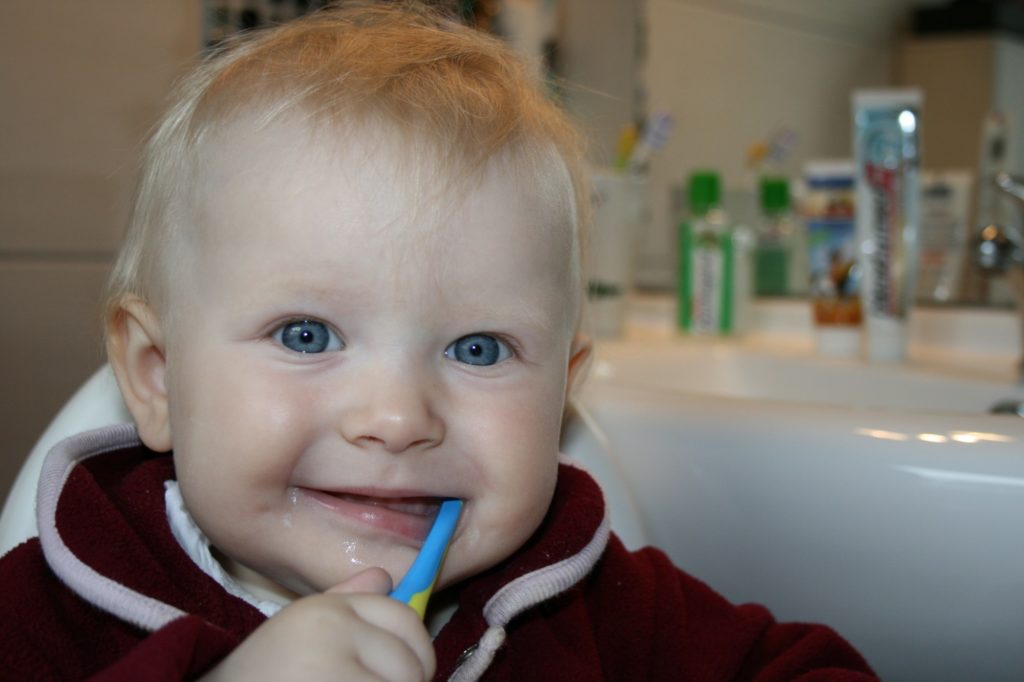
Brushing and flossing multiple times a day is a necessity if we want to maintain good oral hygiene. The same is true for our little ones. We might not stop to consider this, but even our infants and toddlers need a preventive dental care routine.
The last thing you want to do is end up in the pediatric dentist’s office with a child’s mouth full of cavities and decay. Their teeth are susceptible to cavities, decay, and other oral health issues just like ours, if not more. Think about all that sugar they eat!
If you can teach your children how to take good care of their teeth at a young age, then it becomes a habit that sticks with them for a lifetime. Our guide below will give you a few tips for how to maintain good oral hygiene for your children. Keep scrolling to learn more.
Create Healthy Habits
If you allow your children to go until the age of 4 or 5 without ever having them brush or floss, then they’ll be more hesitant to accept these new habits. The sooner you start brushing and flossing their teeth, the easier it’ll be for them to make a habit out of it.
Be sure to help your little ones brush and floss their teeth each morning and night before bed. To make it a fun habit, you can play a favorite song for them while they brush or make a chart with golden stars for each time they complete a brushing or flossing.
Children also love to watch what we do and mimic it. Brush and floss your teeth alongside them, and they’ll have no issue wanting to clean their teeth as well.
Healthy habits also include eating and drinking less sugar. Sugary foods and drinks can cause cavities and tooth decay. Cut back on how much sugar they’re getting by creating healthy eating habits as well.
Remove Baby Bottles
It’s sometimes easy to forget to remove a bottle from our little ones’ mouths when they finish it. Once they finish a bottle, they might fall asleep while still sucking on it. They might also want to continue walking around with the bottle in their mouths.
This is a habit that we must try to break our little ones of. Having a bottle constantly in their mouth when they’re not drinking can cause bottle rot on their teeth. The same is true with sippy cups.
It’s best to teach your children to hand the bottle or cup to you when they’re done. If they’re still infants, then be sure to remove the bottle from their mouths when done. Pacifiers have the same effect on infant and toddler teeth over time.
Try to break your toddler off the pacifier as soon as possible to prevent oral hygiene issues.
Allow Your Children to Choose
It’s no fun being told what to do all the time and having no say or no control over what happens in our lives. Little ones feel this way too, even though you know what’s best for them. To make them feel like they have some control over the situation, allow them to choose their own toothpaste, toothbrush, floss, mouth wash, and more.
Children’s dental hygiene products come in all different fun designs. You can find their favorite characters on them and plenty of different yummy flavors as well. Take them down the oral hygiene aisle and allow them to choose which ones they want.
They’ll be excited to come home and use them!
Listen to Your Children
You can’t always see what’s going on in your children’s mouths. Although it’s a good idea to check inside their mouths occasionally to spot any signs of decay or other issues, there might be some problems you can’t see. This is why it’s important to listen to your children when they express any tooth pain to you.
If your children complain of a toothache, place fingers in their mouths, or cry about tooth pain, then you need to take it seriously. Look inside their mouths to see if you can spot the problem area. If you can’t see anything wrong, then you should still bring them into the dentist to ensure everything is okay.
Schedule Routine Dentist Visits
Routine dentist visits are just as essential for your infants as they are for your older children and yourself. You should begin taking your children to the dentist at the first sign of their first tooth.
Although you won’t need to floss your infant’s tooth or brush it with a regular toothbrush, you will need to wipe the tooth down with a wet cloth or brush it with an infant finger scrubber. This will help wipe away bacteria from their tooth.
When at the dentist, be sure to ask about preventive care, about sealants, fluoride, and more. The dentist will be able to answer all of your questions about preventive dental care for your little ones that you can then follow as more teeth grow in.
What Does Your Preventive Dental Care Routine Look Like?
What kind of preventive dental care routine do you have for your children? If you haven’t put one in place yet, then use this guide to help you create one and stick to it.
Are your little ones growing in their first tooth or set of teeth?
Schedule an appointment today to see their pediatric dentist and begin their own oral hygiene maintenance!
 (214) 453-2565
(214) 453-2565